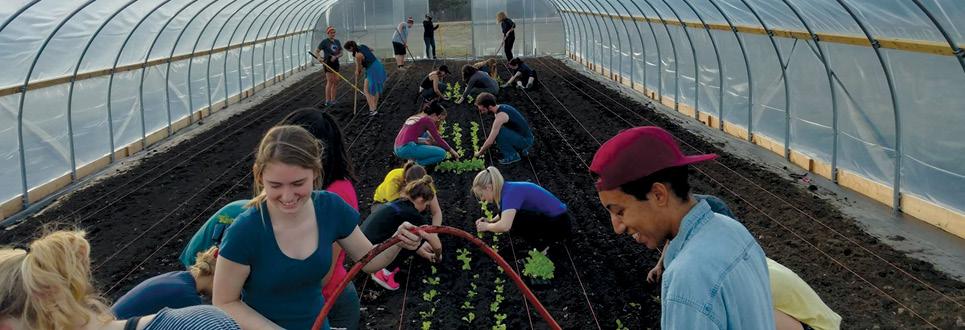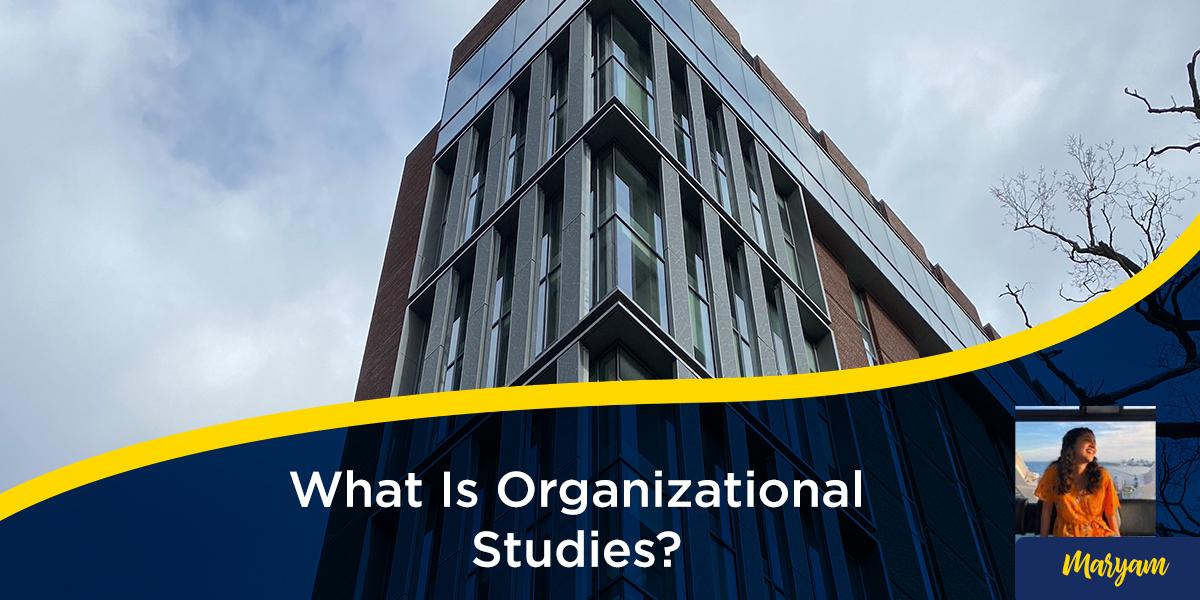Blog
Get the inside scoop about life at U-M and applying to Michigan from current student bloggers, Admissions staff, and guest faculty writers.

Get the inside scoop about life at U-M and applying to Michigan from current student bloggers, Admissions staff, and guest faculty writers.

How I found a serious contender for my eventual major.

If I had a nickel for every time someone asked me to explain my major, Organizational Studies (OS), I wouldn’t need to apply for jobs anymore. (Kidding — nickels won’t pay the rent.) Since I declared my major at the end of my sophomore year, I’ve had this exact encounter well-meaning adults who want to know what I’m doing with my life how I’m doing. The conversation usually goes something like this:
Admittedly, these conversations are an improvement from the ones I had toward the end of my first year when I was still unsure about what I wanted to pursue academically. After taking a course cross-listed in the Program in the Environment (PiTE) and OS called Business and the Environment, I considered OS a serious contender for a prospective major. (As an aside, I highly recommend taking any one of the 200-level OS courses open to all students if you have three extra credits to spare next semester.)
But I had to wait another semester before making any decisions. Traditionally, you apply to the OS program sometime in January of your sophomore year and begin the program the fall semester of your junior year. You, along with about 50 other students, take courses in the field of organizational studies, such as Formal Organizations and the Environment, Inside Organizations, and Advanced Research Methods. It’s not until the end of your junior year that you might be able to offer up a definition of the field.
So, what is organizational studies? To keep things clear and simple, I’ll break my definition into two buckets: the macro-level and the micro-level lens of the organization. At a macro-level, organizational studies look at how organizations interact in their environment, grow, and transform. Remember when everyone was talking about how businesses were going to respond to COVID-19? That’s organizational studies! At a micro-level, organizational studies look at individual behavior and intraorganizational dynamics, like how individuals participate and thrive within organizations, build social capital, and work in teams. Ever worked on a group project and felt like you did most of the work? You could have drawn from influence tactics drawn from organizational behavior! Basically, we operate at the intersections of sociology, psychology, and economics, with applications in business, nonprofits, public health, and more.
OS is flexible in that outside of introductory statistics and the three core major classes you take with your cohort, you can choose from dozens of classes that fulfill major requirements, or even petition your own to count towards your degree. Each student within the program carves out what we call a “pathway,” which is an umbrella theme or idea that we use to analyze organizations. This can be something like sustainability, positive organizational scholarship, nonprofits and social change, or technology. For example, I fulfilled my major elective requirements with classes in OS and business (and somehow, an urban planning class) to inform my pathway of how individuals can invoke organizational identity through brand storytelling.
That’s why it’s hard to put a definition to organizational studies. Every student approaches the program differently. This flexibility was beneficial to help me pinpoint my interests, but I was also challenged by not having a clear-cut curriculum. It’s definitely one of those you-get-what-you-put-into-it scenarios: You have to have a firm idea about what you want to get out of the program and actively work to acquire it.
If you lean towards preferring flexible curriculums, I would advise you to learn more about the program in Organizational Studies. Doesn’t sound too interesting? I’m glad I could eliminate one of 280 degree programs across 14 schools and colleges offered by U-M for you! Take another browse through the offerings — maybe you'll find your unusual and cool degree somewhere in between Aerospace Engineering and Organizational Studies.

Maryam Masood (she/her) is a senior in the College of Literature, Science, and the Arts majoring in Organizational Studies. During the year, she keeps busy managing the Michigan Refugee Assistance Program and working as a trainer at Rec Sports. Outside of class and work, she can most likely be found making another cup of coffee, procrastinating at the CCRB, or rewatching Kim's Convenience on Netflix.